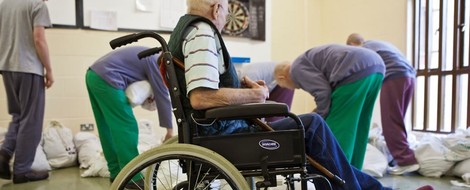Your podcast discovery platform
Curious minds select the most fascinating podcasts from around the world. Discover hand-piqd audio recommendations on your favorite topics.

piqer for: Boom and bust Health and Sanity Global finds Doing Good
Danielle Batist is an experienced freelance journalist, founder of Journopreneur and co-founder of the Constructive Journalism Project. She lived and worked all around the globe and covered global and local stories of poverty, exclusion and injustice. Increasingly, she moved beyond ‘problem-reporting’ to include stories about the solutions she found. She witnessed the birth of the new nation of South Sudan and interviewed the Dalai Lama. She reported for Al Jazeera, BBC and the Guardian and regularly advises independent media organisations on innovation and sustainability. She loves bringing stories to the world and finding the appropriate platforms to do so. The transformation of traditional media fascinates rather than scares her. While both the medium and the message are changing, she believes the need for good storytelling remains.
'Buried Alive': The Disproportionate Punishment Of Elderly Prisoners
One of the things I like about living abroad is to see how foreign media write about your home country. Every now and then a story breaks about how the Netherlands manages to decrease its prison population and close down prisons. I was reminded of that today, when I read this longform investigation into the UK prison system. Its focus on the increasing elderly prison population was something I’d never considered before.
My mum is a nurse working with elderly, often in the last stages of life, and I thought of the many conversations we had over the years as I read this article. It’s so easy to say: “your age doesn’t change what you did”, and therefore dismiss compassionate release. But when you hear some of the experiences recalled by prisoners and prison guards, it is clear just how much more complex — and wrong — the situation is.
Overnight, every night, the prisoner would forget that he was guilty of any crime and wake, expecting to be in his own bed, at home. Every morning, the officer had to allocate extra time to gently break the news to him yet again that he was in prison, why and for how long. It was, the officer said, deeply upsetting — not just for the prisoner, but for him, too. “Of course this prisoner should be punished for his crime,” the officer said. “But his condition meant his punishment was many times worse than a prisoner without dementia. I ended up feeling that he was going through something closer to torture than to civilised punishment. It didn’t seem humane and it didn’t seem fair.”
The author makes a start at addressing what could be done to turn the tide (a strong focus on rehabilitation over punishment, and shorter sentences), though admits that in Britain “we’re not even close to having that discussion”.
A long but fascinating and important read, which might just contribute to the starts of a debate about much-needed reform.

While in school, I had a part-time job in a nursing home. It was part of the routine to catch patients who fled in the search for a bus stop or train station. Every day they woke up, terrified by finding themselves in a strange place with just one wish: Going back home. Dementia is a torture no matter what. I can't imagine how tormenting dementia in prison must be. Fascinating read. Thanks.